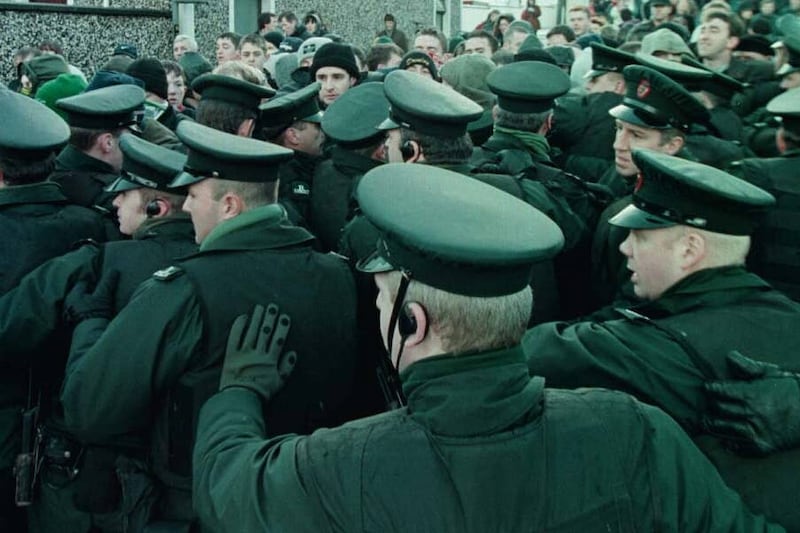January 13 1975
MR Michael Canavan, Derry SDLP Assembly member has stated that figures released by the RUC recently showed that many Protestants were being charged and that the discrepancy between Catholics and Protestants charged was due to the greater number of Catholics being involved in crimes of violence. The overall inference, he said, was that the RUC were now acting impartially.
By confining itself to persons charged, the report neatly avoids any record of the numbers interned, which at present run to approximately 500 Catholics to 25 Protestants, said Mr Canavan.
Similarly, he said, the report did not mention the arrest and interrogation of literally thousands of innocent Catholic youths during 1974, held in RUC barracks up to 72 hours, often at financial loss.
All these activities were carried out under the terms of the Emergency Provisions Act by both the RUC and the British Army and were levied overwhelmingly against the Catholic population.
Mr Canavan said that in the view of many, the most serious breach of confidence in the RUC in 1974 came during the UWC strike when thousands of Loyalists, some armed with aggressive weapons, blatantly broke the law under RUC eyes.
The report, he said, avoided pinpointing the RUC’s failure to take action during the strike in literally thousands of cases.
“As a whole, therefore, the report is notorious for what it does not mention”, he said. In addition the very fact that a police report divides its categories into Catholic and Protestant indicated the chasm that existed in the Northern Ireland society.
The old pattern of Loyalist domination, which led directly to this medieval position must be replaced by partnership in government before there can be real confidence in government institutions, of which policing is one of the most important.
That chasm can only be bridged by Catholics and Protestants working together in a confidence born of partnership in government, said Mr Canavan. Society could then be protected by a police service supported by all, there is no other way.
To encourage political consensus, the SDLP have already indicated that they were willing to discuss all aspects of government, including police and security, with interested parties or groups. But to deal with policing before political agreement would do both population and police a grave disservice and would receive no support from the SDLP.
Strong criticism from the SDLP’s Michael Canavan for an RUC report which omitted key information that would have highlighted it was not the impartial force it professed it to be.








